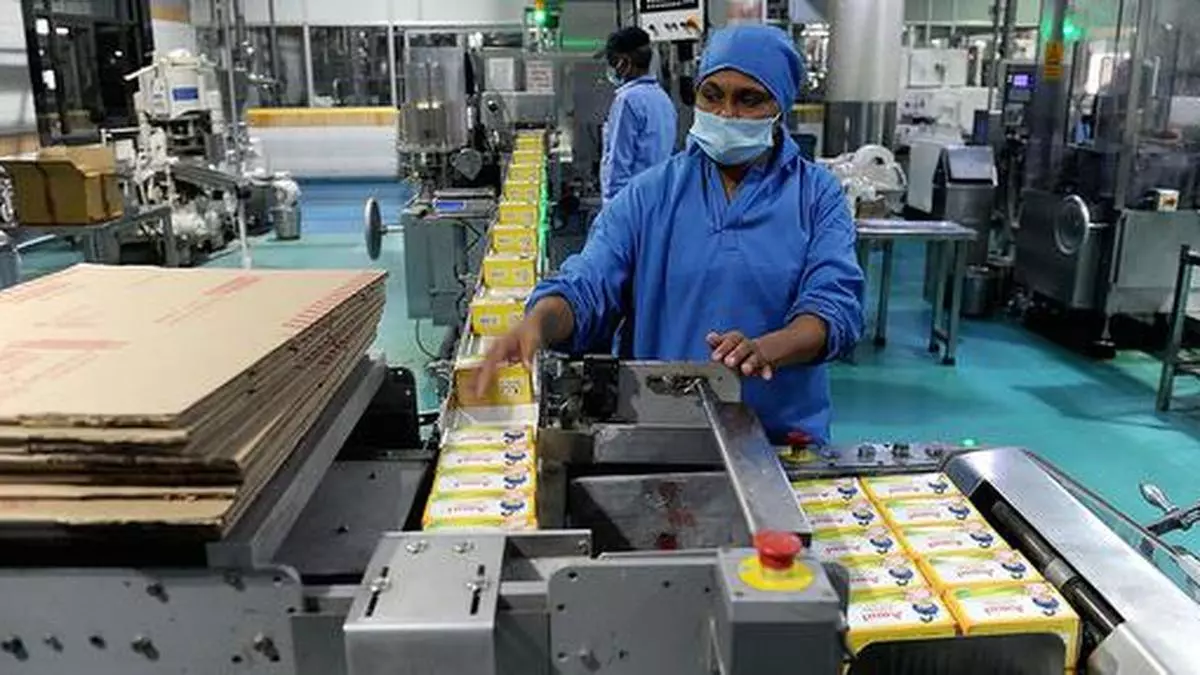How is the Indian Government is currently supporting the dairy industry
India is the world’s largest producer of milk, and the dairy industry plays a vital role in the country’s economy, providing livelihoods for millions of farmers and contributing significantly to nutrition security.
Recognizing the industry’s importance, the Indian government has implemented various measures to support and enhance the dairy sector.
These initiatives range from financial assistance and technological advancements to improving infrastructure and ensuring quality standards. Here’s an overview of how the Indian government is currently supporting the dairy industry.
Financial assistance and subsidies
One of the primary ways the Indian government supports the dairy industry is through financial assistance and subsidies.
Programmes like the Dairy Entrepreneurship Development Scheme (DEDS) offer subsidies to encourage the establishment of modern dairy farms and the adoption of advanced technologies.
These subsidies cover various aspects, including the purchase of high-yielding cattle, the construction of dairy sheds, and establishment of milk processing units.
Additionally, the government provides interest subvention on loans for dairy farmers, making it easier for them to access credit at lower interest rates. This financial support helps farmers invest in better infrastructure, enhance productivity, and increase their income.
Technological advancements and innovation
To boost productivity and ensure the sustainability of the dairy sector, the Indian government promotes the adoption of modern technologies and innovative practices. The National Dairy Development Board (NDDB) plays a crucial role in this regard by facilitating the use of advanced breeding techniques, artificial insemination, and veterinary care.
The government also supports research and development in the dairy sector through institutions like the Indian Council of Agricultural Research (ICAR). These efforts focus on improving cattle genetics, developing high-quality fodder, and enhancing disease management practices. By embracing technology and innovation, the government aims to increase milk yield and ensure the health and well-being of dairy animals.
Infrastructure development
Infrastructure development is a key component of the government’s strategy to support the dairy industry. The Rashtriya Gokul Mission, launched in 2014, focuses on conserving and developing indigenous breeds of cattle and improving their productivity. Under this mission, the government is establishing Gokul Grams (integrated cattle development centers) and strengthening existing cattle breeding infrastructure.
Moreover, the government is investing in improving milk collection, storage, and transportation facilities. The establishment of bulk milk coolers, automatic milk collection units, and refrigerated transport systems ensures that milk is collected and delivered efficiently, reducing spoilage and maintaining quality.
Ensuring quality standards
To enhance the quality and safety of dairy products, the Indian government has implemented stringent quality control measures. The Food Safety and Standards Authority of India (FSSAI) regulates the dairy sector to ensure that milk and milk products meet established safety and quality standards. Regular inspections and testing are conducted to prevent adulteration and contamination.
The government also promotes the use of hygienic practices at the farm level through training programs and awareness campaigns. By emphasizing quality control, the government aims to build consumer trust and expand the market for Indian dairy products both domestically and internationally.
Cooperative movement and farmer empowerment
The cooperative movement has been instrumental in the growth of the Indian dairy industry, and the government continues to support and strengthen dairy cooperatives. The success of the Amul cooperative model has inspired the establishment of similar cooperatives across the country, providing a collective platform for farmers to market their milk and negotiate better prices.
The government provides training and capacity-building programs for dairy farmers, equipping them with the knowledge and skills needed to improve their operations. Initiatives like the National Programme for Dairy Development (NPDD) focus on enhancing the capacities of dairy cooperatives and producer companies, ensuring that farmers receive fair remuneration and benefits.
Export promotion and market expansion
To boost the global presence of Indian dairy products, the government is actively promoting exports. The Agricultural and Processed Food Products Export Development Authority (APEDA) facilitates the export of dairy products by providing necessary certifications, ensuring compliance with international standards, and organising trade fairs and buyer-seller meets.
The government also engages in bilateral and multilateral trade negotiations to open new markets for Indian dairy products. By expanding market access and promoting the high quality and diversity of Indian dairy products, the government aims to increase export revenues and create new opportunities for dairy farmers.
The Indian government’s multifaceted approach to supporting the dairy industry encompasses financial assistance, technological advancements, infrastructure development, quality control, cooperative empowerment, and export promotion.
These initiatives not only enhance the productivity and profitability of the dairy sector but also ensure the welfare of millions of farmers who depend on dairying for their livelihoods. Through continued support and innovation, the government aims to sustain the growth of the dairy industry and contribute to the overall economic development of the country.
The author is director with Sterling Argo Industries Limited ( Nova Dairy Products )
